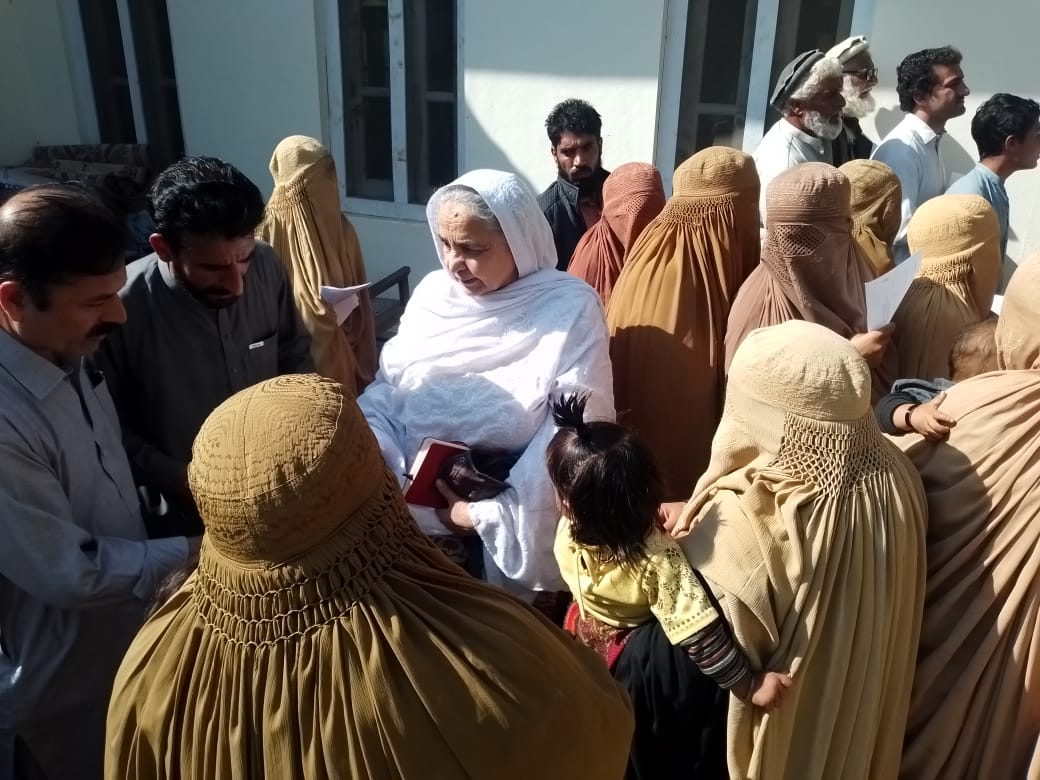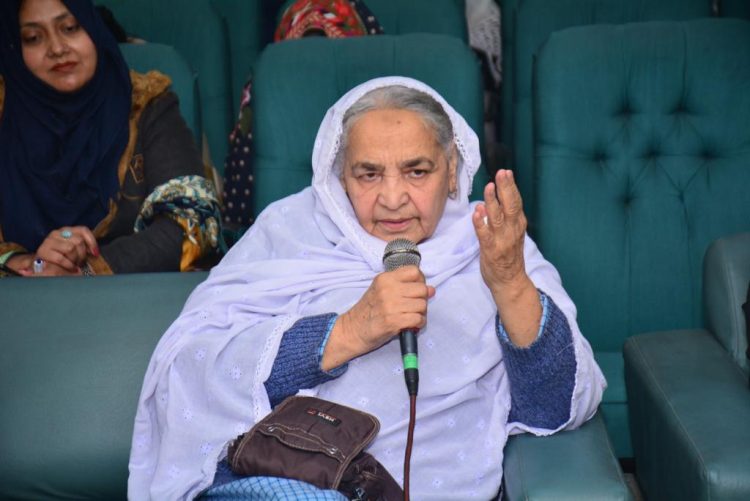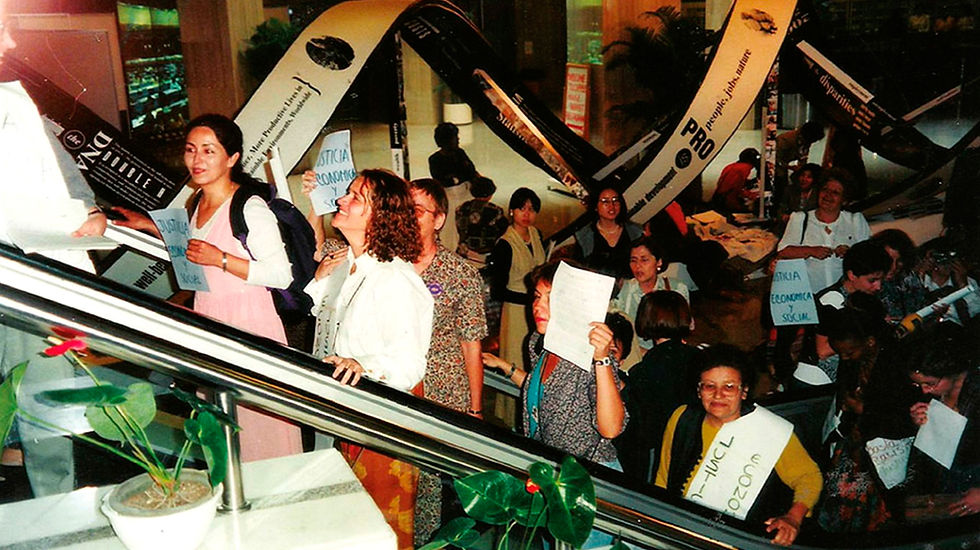The changing landscape of activism
Today’s challenges are different from those we faced in 1995. The rise of social media and technology has made it easier for women to access information and organise. Awareness is higher than ever before, and younger women are using digital platforms to amplify their voices.
But inequality remains deeply entrenched. While urban women benefit from these new opportunities, rural women are often left behind. Shelter homes, support services, and legal aid exist – but they are concentrated in cities. The gap between privilege and poverty continues to widen, making it even harder for the most vulnerable women to claim their rights.

Hope and resilience
Despite the struggles, I remain hopeful. Women like me do not have the luxury of hopelessness – it is not in our DNA. We carve out spaces where none exist, and we keep moving forward. My organisation Khwendo Kor, founded in 1993, continues to push for positive change.
However, I do worry about the future. International funding for gender equality is shrinking. Civil society organisations are under increasing pressure. The urgency for women’s rights is being overshadowed by other global crises. But we cannot afford to lose momentum. We must keep advocating, keep pushing, and keep reminding the world that women’s rights must never be sidelined.
Bridging generations for lasting change
One of the greatest lessons I have learned is the importance of intergenerational collaboration. Younger activists bring fresh perspectives, energy, and new strategies. Older activists carry experience, history, and resilience. Together, we can be a formidable force.
But for this partnership to thrive, both sides must be open. Older activists must remain flexible and willing to adapt. Younger activists must recognise the value of learning from those who have walked this path before. The struggle for women’s rights is not a sprint – it is a relay, and the baton must be passed from one generation to the next.
Change must emerge while ensuring all stakeholders are included in the journey. I’m reminded of an African proverb I love: “If you want to go fast, go alone. If you want to go far, take others with you.”
The work ahead
As we reflect on the journey so far, one thing is clear: women’s rights cannot be treated as a separate agenda. Women must be included in every aspect of life, from politics to economics, from disaster response to social policies. Affirmative action and positive discrimination remain necessary in many countries to level the playing field.
The biggest challenge remains reaching the women who have been left behind. The frameworks exist, but how do we ensure they translate into real change? How do we make sure that the promises made at global conferences truly impact the lives of rural women, older women, and those on the margins of society?
This remains our unfinished work. And for as long as there is injustice, the fight must go on.
 Dr. Maryam Bibi is a distinguished leader in women’s empowerment and education in Pakistan. As the founder of Khwendo Kor (“Sisters’ Home”), she has been instrumental in advancing women’s rights in Khyber Pakhtunkhwa and the Tribal Areas through education, healthcare, and civil rights initiatives. Her efforts have earned her numerous accolades, including a UK doctorate and a Nobel Peace Prize nomination.
Dr. Maryam Bibi is a distinguished leader in women’s empowerment and education in Pakistan. As the founder of Khwendo Kor (“Sisters’ Home”), she has been instrumental in advancing women’s rights in Khyber Pakhtunkhwa and the Tribal Areas through education, healthcare, and civil rights initiatives. Her efforts have earned her numerous accolades, including a UK doctorate and a Nobel Peace Prize nomination.
From 1993 to 2023, Maryam’s contributions have been widely recognised. She has been honoured with the Sitara-e-Imtiaz, the human rights award from the International Labour Organization, multiple UN recognition awards, the Fatima Jinnah award, and, most recently, the development leadership award in 2023. Maryam remains commited to human rights, environmental conservation, and advocacy for women’s empowerment.



 Dr. Maryam Bibi is a distinguished leader in women’s empowerment and education in Pakistan. As the founder of Khwendo Kor (“Sisters’ Home”), she has been instrumental in advancing women’s rights in Khyber Pakhtunkhwa and the Tribal Areas through education, healthcare, and civil rights initiatives. Her efforts have earned her numerous accolades, including a UK doctorate and a Nobel Peace Prize nomination.
Dr. Maryam Bibi is a distinguished leader in women’s empowerment and education in Pakistan. As the founder of Khwendo Kor (“Sisters’ Home”), she has been instrumental in advancing women’s rights in Khyber Pakhtunkhwa and the Tribal Areas through education, healthcare, and civil rights initiatives. Her efforts have earned her numerous accolades, including a UK doctorate and a Nobel Peace Prize nomination.